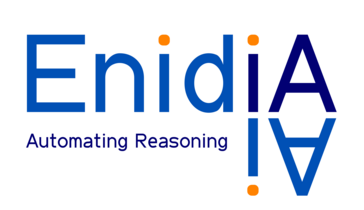Top Ai Legal Assistant Softwares
AI Legal Assistant software revolutionizes legal practices by automating tasks and enhancing decision-making processes. This innovative category of software harnesses artificial intelligence to streamline legal research, document drafting, and client communication, making legal services more efficient and accessible. By leveraging natural language processing and machine learning, these tools can a... Read More
13 companies found
Product Description
Filevine is a software designed to help law firms manage their work more efficiently. It puts all case information in one place, making it easier for legal teams to keep track of their tasks, communications, deadlines, and documents. Filevine's goal is to cut down on the time lawyers and staff spend on administrative tasks, allowing them to focus more on their clients and cases. One of the main f... Read More
Users
- • No Data
Industries
- • No Data
Market Segment
- • No Data
Product Description
Everlaw is a cloud-based software designed to simplify the complex world of legal work. Combining the powers of data processing, document review, and case analysis in one platform, Everlaw aims to make the work of legal professionals more efficient and straightforward. It’s built for law firms, government entities, and corporate legal teams who need a reliable tool to handle everything from litiga... Read More
Users
- • No Data
Industries
- • No Data
Market Segment
- • No Data
Product Description
LawY is designed specifically with legal professionals in mind, streamlining the various tasks and responsibilities that lawyers and law firms juggle every day. From case management to client communication, LawY provides an all-in-one, easy-to-use platform that allows legal teams to operate more efficiently. Imagine all your case files, documents, and communication in one place, accessible from a... Read More
Users
- • No Data
Industries
- • No Data
Market Segment
- • No Data
Product Description
Genie AI software is designed to make your life simpler by automating and simplifying decision-making processes. Tailored specifically for businesses operating in rapidly changing environments, Genie AI helps managers and teams sift through volumes of information to pinpoint key insights and make more informed decisions. The software is structured to adapt to various industries, ensuring that no m... Read More
Users
- • No Data
Industries
- • No Data
Market Segment
- • No Data
Product Description
Finding the right software for your business can be an overwhelming task. With so many options out there, knowing what will work best for your specific needs isn't always clear. That's where Harvey comes in. Harvey is a software designed specifically for buyers who need help identifying the right Software-as-a-Service (SaaS) tools for their business. It's like having a knowledgeable friend guidi... Read More
Users
- • No Data
Industries
- • No Data
Market Segment
- • No Data
Product Description
CoCounsel is designed for teams and professionals who need to streamline their collaborative processes. This software brings together project management, communication, and documentation tools in one place, making it easier to work together effectively. Whether you're working in legal, consulting, or any industry that relies on teamwork and document handling, CoCounsel simplifies the way you manag... Read More
Users
- • No Data
Industries
- • No Data
Market Segment
- • No Data
Product Description
Jus Mundi is a powerful tool designed to simplify and enhance the workflow for professionals in the legal and arbitration sectors. At its core, Jus Mundi aims to transform how legal research is conducted by providing easy access to a comprehensive database of legal documents and resources. Imagine having a library at your fingertips, stocked with a vast amount of legal materials from internationa... Read More
Users
- • No Data
Industries
- • No Data
Market Segment
- • No Data
Product Description
Amto.ai is designed to help businesses streamline their operations and make the most of their data. Whether you're a small startup or a growing company, this platform offers practical tools to manage and analyze your information more effectively. By using Amto.ai, you can reduce the time spent on routine tasks and allocate more effort toward reaching your business goals. With Amto.ai, you can aut... Read More
Users
- • No Data
Industries
- • No Data
Market Segment
- • No Data
Product Description
EnidiA AI is a user-friendly software tailored specifically for SaaS businesses. Its primary goal is to simplify customer interaction and enhance your service operations with minimal effort on your part. EnidiA AI uses advanced AI technology to handle routine customer queries and tasks, freeing up your team to focus on more complex issues. It seamlessly integrates into your existing systems withou... Read More
Users
- • No Data
Industries
- • No Data
Market Segment
- • No Data
Product Description
Eve Software is designed to streamline your business processes by offering an intuitive platform that focuses on making day-to-day operations as smooth as possible. Our software provides practical tools to help you manage everything from customer relationships and marketing campaigns to project management and team collaboration, all in one place. Whether you're working from the office or remotel... Read More
Users
- • No Data
Industries
- • No Data
Market Segment
- • No Data
What is AI Legal Assistant software?
AI Legal Assistant software refers to a category of applications designed to assist legal professionals by leveraging artificial intelligence technologies. These solutions play a significant role in streamlining legal processes, enhancing efficiency, and reducing the time spent on tedious and repetitive tasks. AI Legal Assistant software is increasingly becoming an integral part of modern legal practices, owing to its ability to handle various legal activities with greater precision and reliability.
Streamlining Legal Research
One of the primary applications of AI Legal Assistant software is conducting legal research. Traditional legal research is often time-consuming, involving the analysis of countless documents and legal precedents. AI Legal Assistant software employs advanced algorithms to quickly scan and analyze large volumes of legal data. This capability allows legal professionals to access relevant case laws, statutes, and legal documents more efficiently, ultimately saving time and resources.
Automating Document Drafting
AI Legal Assistant software also assists in drafting legal documents. It can generate templates and draft content based on predefined parameters or past case data. This automation reduces the risk of human error and ensures consistency in legal documentation. The software can assist with a variety of legal documents, including contracts, wills, and agreements, significantly speeding up the document drafting process.
Enhancing Legal Analytics
Data analytics within the legal industry is crucial for informed decision-making. AI Legal Assistant software can analyze historical legal data and current judicial trends to offer insights and predictions. Legal professionals can use these insights to strategize their cases more effectively. By understanding patterns and potential outcomes, lawyers and legal teams can make data-driven decisions to strengthen their positions.
Efficient Case Management
AI Legal Assistant software provides tools for efficient case management, organizing and tracking tasks associated with each case. This ensures that legal professionals stay on top of deadlines and requirements. The software can prioritize tasks, schedule meetings, and remind users of crucial dates, thereby fostering better case management and allowing legal teams to invest their time in complex legal matters.
Natural Language Processing and Document Review
AI Legal Assistant software often includes natural language processing (NLP) capabilities for document review. This allows the software to understand and interpret legal documents in a way that mimics human comprehension. It can identify relevant clauses, spot potential legal issues, and even suggest edits or improvements. This assists legal professionals in reviewing contracts and other documents, ensuring that they are comprehensive and free of errors.
Improving Client Communication
Communication with clients is vital in legal practice. AI Legal Assistant software helps facilitate better communication by managing client inquiries and keeping track of communication history. Some software solutions offer chatbots capable of addressing client questions, providing basic legal advice, and guiding them to relevant information, all within a user-friendly interface. This improves the client experience and ensures that legal professionals can focus more on case-specific tasks.
AI Legal Assistant software is a transformative tool for the legal industry, providing numerous benefits that enhance the productivity and effectiveness of legal professionals. By incorporating advanced AI capabilities, this software transforms how legal tasks are executed, ensuring a more efficient and streamlined process.
How does AI Legal Assistant software help law firms?
Streamlining Document Management
AI Legal Assistant software significantly enhances document management in law firms. It automates the organization, storage, and retrieval of documents, allowing legal professionals to access necessary files quickly. The software can categorize legal documents by type or subject matter, ensuring easy tracking and reducing time spent on administrative tasks. This capability eliminates the need for physical storage, creating a paperless environment which reduces clutter and improves efficiency.
Enhancing Legal Research
AI Legal Assistant software revolutionizes legal research by providing advanced search capabilities that can sift through vast legal databases swiftly. It uses natural language processing to understand queries and deliver relevant legal precedents and statutes efficiently. This reduces the time lawyers spend on routine research, enabling a deeper focus on case strategies and client interaction. By providing accurate and comprehensive legal information, the software supports informed decision-making.
Automating Repetitive Tasks
Legal professionals deal with numerous repetitive tasks such as drafting documents and contract review, which can be time-consuming. AI Legal Assistant software automates these processes, generating drafts and checking documents for compliance with legal standards. Automation ensures consistency, minimizes the risk of errors, and allows legal teams to allocate time to more complex issues that require human oversight.
Client Interaction and Case Management
AI Legal Assistant software offers tools for managing client relationships and handling case work efficiently. By storing client interactions, deadlines, and case details systematically, the software helps in maintaining a seamless communication flow between lawyers and their clients. It provides reminders for critical tasks and deadlines, thereby improving overall case management and ensuring timely legal representation.
Cost Efficiency
Implementing AI Legal Assistant software can result in substantial cost savings for law firms. By automating mundane and repetitive tasks, the software cuts down on labor costs associated with manual processing. It empowers smaller firms to execute tasks previously requiring additional manpower, leveling the playing field with larger firms by freeing up resources and potentially increasing profit margins.
Increasing Accuracy
AI Legal Assistant software offers enhanced accuracy in legal processes. By employing advanced algorithms and machine learning, it helps validate legal documents, ensuring they adhere to legal standards and regulations. This reduces the likelihood of errors that could lead to costly legal disputes or penalties. Ensuring precise documentation is crucial for maintaining a firm’s reputation and client trust.
Scalable Solutions
AI Legal Assistant software provides scalable solutions suitable for firms of all sizes. As a SaaS model, it can be easily updated and scaled to meet the growing needs of a firm. This flexibility supports the dynamic needs of a legal office, allowing the software to evolve with legal trends and technological advancements without substantial reinvestment.
By leveraging AI Legal Assistant software, law firms can enhance productivity, improve service delivery, and maintain a competitive edge in the legal industry. Its capabilities support modern legal practices by transforming traditional workflows through technological innovation.
What features should I look for in AI Legal Assistant software?
When considering the adoption of AI Legal Assistant software, various features are fundamental to ensure efficacy, efficiency, and reliability in handling legal tasks. Understanding these features can help streamline your legal operations and improve productivity.
1. Document Automation
AI Legal Assistant software should include document automation capabilities to generate legal documents swiftly and accurately. This feature reduces manual drafting errors and saves time by using templated documents and pre-set workflows.
2. Natural Language Processing (NLP)
To comprehend and analyze legal language effectively, AI Legal Assistant software must incorporate Natural Language Processing. NLP enhances the software’s ability to understand and interpret legal terminology, statutes, and regulations, allowing for more accurate research and analysis.
3. Predictive Analytics
Predictive analytics can anticipate outcomes by examining historical data and patterns. In AI Legal Assistant software, this feature supports assessing case outcomes and improving strategic decision-making based on data-driven insights.
4. Legal Research Capabilities
Efficient legal research functionalities are crucial in AI Legal Assistant software. It should allow rapid searching through legal databases and case law to find relevant information, greatly minimizing the time spent on conducting traditional research manually.
5. Case Management
AI Legal Assistant software often includes case management capabilities, offering a centralized platform to track and manage ongoing cases. This feature helps in organizing client information, deadlines, and court dates efficiently.
6. Compliance Monitoring
Facilitating adherence to legal and regulatory obligations, AI Legal Assistant software should offer compliance monitoring tools. This ensures that organizations remain updated with legal requirements and can flag potential compliance issues proactively.
7. eDiscovery
eDiscovery features in AI Legal Assistant software help in identifying, collecting, and producing electronically stored information (ESI) during litigation. This process is crucial for uncovering critical evidence and reducing the overall legal risk.
8. Client Communication Tools
Communication tools integrated within AI Legal Assistant software enhance interactions with clients, enabling regular updates and information sharing. This improves client relations and fosters trust by ensuring transparency and accessibility.
9. Integration Capabilities
To function seamlessly within existing workflows, AI Legal Assistant software should provide integration capabilities with other legal technology platforms, such as billing systems or customer relationship management (CRM) tools.
10. Secure Data Storage
Given the sensitivity of legal data, AI Legal Assistant software must offer robust encryption and security measures for data storage. This feature is crucial to protect client confidentiality and adhere to data protection standards.
11. Customization Options
AI Legal Assistant software should offer customization options to tailor features according to specific legal requirements or practice areas. This ensures that the software fits unique workflows and enhances overall adaptability.
Careful consideration of these features in AI Legal Assistant software can significantly elevate legal service delivery, offering enhanced accuracy and client satisfaction in a competitive legal landscape.
How does AI Legal Assistant software ensure data security?
Encryption
AI Legal Assistant software employs robust encryption protocols to safeguard sensitive data. Encryption renders the information unreadable to unauthorized users, ensuring that client and legal data remain confidential during both storage and transmission. This typically involves the use of advanced algorithms that encode data, which can only be decoded or accessed with the proper decryption keys. By maintaining strict encryption standards, AI Legal Assistant software creates a secure environment for handling legal documentation and communications.
Access Controls
Implementing stringent access controls is another vital security feature of AI Legal Assistant software. Access controls ensure that only authorized personnel can view or handle sensitive data. This involves implementing role-based access systems, where users are granted specific permissions based on their role within the organization. This minimizes the chance of unauthorized data access and potential internal breaches, ensuring that only qualified individuals can manage particular aspects of the data.
Compliance with Legal Standards
AI Legal Assistant software is often designed with compliance in mind, adhering to various legal standards and regulations that govern data protection. Compliance with laws such as the General Data Protection Regulation (GDPR) or the California Consumer Privacy Act (CCPA) reflects a commitment to maintaining high standards of security. Adhering to such regulations ensures that the software consistently follows best practices for data security, reducing the risk of legal liabilities and enhancing the trustworthiness of the software.
Secure Data Storage
Storing data securely is crucial, and AI Legal Assistant software achieves this through reliable storage solutions. This involves using secure cloud services that offer redundancy and failover capabilities, ensuring that data remains accessible yet protected against potential security breaches. Storage solutions are typically fortified with multiple layers of security, providing robust protection against data-loss events and unauthorized access.
Regular Security Audits and Updates
To maintain an impenetrable security posture, AI Legal Assistant software undergoes regular security audits and updates. Security audits help to identify potential vulnerabilities within the software and establish plans for mitigation. Frequent software updates ensure that any discovered vulnerabilities are promptly patched, keeping the software resistant to the latest security threats. This proactive approach helps maintain the highest security standards and ensures confidence in the software’s ability to protect sensitive data.
Data Anonymization
Data anonymization is another method employed by AI Legal Assistant software to enhance data security. By removing personally identifiable information (PII) from datasets, this technique ensures that even if data is accessed unauthorizedly, it cannot be traced back to any specific individual. Anonymizing data protects client confidentiality and reduces the risks associated with data breaches, making the information significantly less valuable to potential attackers.
Incident Response Plans
Having a robust incident response plan in place is essential for AI Legal Assistant software. This involves preparing procedures to quickly address any security incidents, minimizing damage and restoring normal operations. An effective incident response plan includes identifying threats, containing breaches, and recovering compromised data. By being prepared, AI Legal Assistant software can effectively respond to incidents, alleviating the adverse effects of security breaches and maintaining the integrity of sensitive data.
Each of these measures plays a crucial role in ensuring that AI Legal Assistant software provides a secure environment for managing legal processes and client data, fortifying the trust placed in these digital solutions.
Can AI Legal Assistant Software Help with Contract Analysis?
AI Legal Assistant software is increasingly being recognized for its role in transforming legal operations, including contract analysis. Through machine learning and natural language processing, these software solutions are equipped to handle various tasks traditionally managed by legal professionals, streamlining processes and enhancing accuracy.
Understanding Contract Analysis
Contract analysis involves reviewing legal documents to identify key clauses, obligations, risks, and compliance issues. This task is crucial in ensuring that all parties involved understand the terms and are protected under the agreement. Manual contract analysis can be time-consuming and prone to human error, making AI Legal Assistant software valuable in this domain.
Benefits of AI in Contract Analysis
-
Speed and Efficiency: AI Legal Assistant software can quickly process a vast amount of data, significantly accelerating the contract review process. Such software is designed to sift through documents at a rate far surpassing human capabilities, thus enabling legal teams to handle more work within shorter timeframes.
-
Improved Accuracy: By reducing human intervention, AI Legal Assistant software minimizes errors commonly associated with manual reviews. Machine learning algorithms are trained to detect subtle nuances and inconsistencies in contracts, yielding more reliable results than manual examination.
-
Consistency: AI software ensures a uniform approach to contract analysis, eliminating subjective interpretations that can vary from one human reviewer to another. This consistency is particularly valuable in ensuring compliance with legal standards and organizational policies.
-
Risk Management: AI Legal Assistant software excels in identifying potential risks within contracts. By highlighting red flags or non-compliance issues, legal professionals can proactively address problems before they escalate, mitigating potential legal disputes and financial losses.
-
Scalability: As organizations grow, so does the volume of contracts they must manage. AI Legal Assistant software can scale its operations without the proportional increase in resources required for human analysis, making it an adaptable solution for businesses of all sizes.
Features Facilitating Contract Analysis
AI Legal Assistant software utilizes several advanced features that aid in contract analysis:
-
Clause Extraction and Comparison: These tools automatically extract important clauses and compare them with a repository of pre-defined standards or past agreements. This feature is beneficial in ensuring that contracts adhere to organizational norms.
-
Automated Summarization: By generating concise summaries, AI software highlights essential elements of contracts, enabling attorneys to grasp key information more rapidly.
-
Natural Language Processing: NLP capabilities allow AI tools to interpret and understand the semantics of legal texts, ensuring more effective analysis and interpretation.
-
Pattern Recognition: AI Legal Assistant software is adept at recognizing patterns within contracts, helping identify standard clauses or unusual terms that may require closer scrutiny.
In conclusion, AI Legal Assistant software represents a significant advancement in contract analysis. By enhancing efficiency, accuracy, and risk management, it is rapidly changing the way legal professionals approach contract review, offering indispensable benefits to the modern legal landscape.
Is AI Legal Assistant Software Suitable for Small Law Practices?
Understanding AI Legal Assistant Software
AI Legal Assistant software is crafted to automate and streamline various aspects of legal work by utilizing artificial intelligence. It serves law firms by handling tasks such as legal research, document management, and client communication, thereby improving efficiency and accuracy in legal practices. This type of software is vital for legal professionals who aim to reduce the time spent on repetitive tasks and focus more on strategic work.
Benefits for Small Law Practices
Small law practices often have limited resources in terms of personnel and budget. AI Legal Assistant software can be a game-changer in this context. Here’s why:
-
Cost-Effectiveness: By reducing the need for extensive manual labor, AI Legal Assistant software helps small law practices save on expenses associated with hiring additional staff. This financial efficiency makes it an attractive option for smaller firms operating with tighter budgets.
-
Time Efficiency: Tasks that traditionally consume significant time, such as legal research and document review, are expedited through AI algorithms. This quick turnaround allows lawyers in small practices to devote more attention to client-facing activities and strategic case development.
-
Improved Accuracy and Consistency: AI Legal Assistant software minimizes human error in repetitive tasks like drafting documents or managing contracts. For small law practices, ensuring accuracy without a large team is crucial, making software assistance indispensable.
Scalability and Flexibility
AI Legal Assistant software is inherently scalable, allowing small law firms to add functionalities as their needs grow. This adaptability is particularly beneficial for practices looking to expand their service offerings or clientele without overhauling their existing systems.
-
Scalable Solutions: Many AI Legal Assistant software solutions offer modular features, meaning small firms can start with basic functionalities and incorporate more advanced tools as their needs and resources expand.
-
Customizable Workflows: Smaller practices can tailor workflows within the AI Legal Assistant software to fit their specific operations. This flexibility ensures that the software accommodates existing processes rather than forcing a complete systems change.
Augmentation of Human Capacity
For small law practices, human resources are often stretched thin. AI Legal Assistant software acts as an augmentation tool, allowing lawyers to maximize their productivity without compromising quality.
-
Enhanced Collaboration: AI Legal Assistant software often includes collaboration tools that enable seamless communication amongst team members, even in small practices where team sizes are limited.
-
Professional Growth: By engaging AI Legal Assistant software for routine tasks, attorneys have more time to focus on honing their expertise, attending professional development activities, and engaging in more meaningful client interactions.
Addressing Concerns
While AI Legal Assistant software offers numerous advantages, small law practices may have concerns regarding data security, ethical considerations, and initial investment costs. Nevertheless, the long-term benefits—such as improved efficiency and potential for higher client satisfaction—often outweigh these concerns.
In conclusion, AI Legal Assistant software is well-suited to meet the needs of small law practices by offering cost-effective, efficient, and scalable solutions that enhance productivity and operational capacity.
What are the benefits of using AI Legal Assistant software over traditional methods?
Efficiency and Time Savings
AI Legal Assistant software significantly enhances efficiency and reduces the time required for legal tasks. Unlike traditional methods, which often involve manual document review and data entry, these intelligent systems can process large volumes of data swiftly and accurately. This saves legal professionals countless hours, allowing them to focus on more strategic aspects of their work.
Cost-Effectiveness
Deploying AI Legal Assistant software can lead to considerable cost savings. By automating routine tasks, law firms can reduce the need for a large administrative workforce. Additionally, AI can minimize errors, thereby decreasing the potential costs associated with rectifying mistakes. Traditional methods, with their heavy reliance on human labor, often incur higher expenses.
Improved Accuracy
Human error is a common challenge in legal work. AI Legal Assistant software excels in processing information with high precision. It can help ensure compliance with legal standards and manage intricate tasks without the inaccuracies that often accompany manual efforts. This results in more reliable documentation and analysis.
Enhanced Research Capabilities
Legal research is a foundational aspect of legal work, and AI Legal Assistant software offers advanced capabilities in this area. These systems are designed to sift through vast stores of legal data to identify relevant information quickly. This not only speeds up the research process but also provides more comprehensive insights than traditional manual research methods.
Personalized Client Interaction
AI Legal Assistant software can enhance how law firms interact with clients. By using data analytics and machine learning, AI systems can tailor communications and services to the specific needs and preferences of each client. Traditional methods may lack this level of personalization, as they do not leverage data in the same dynamic way.
Scalability
The capacity to scale operations is another advantage of AI Legal Assistant software. Firms can handle an increasing workload without a proportional rise in resources or costs. Traditional methods, however, often require hiring additional staff as demand grows, which can be a slow and costly process.
24/7 Availability
AI Legal Assistant software can operate continuously without breaks. This enables firms to offer round-the-clock service, providing clients with support whenever needed. Traditional methods rely on human availability, which is inherently limited to certain hours.
Proactive Risk Management
AI Legal Assistant software can provide proactive risk management through predictive analytics. By identifying potential legal issues early, firms can take preemptive actions to mitigate risks. Traditional approaches might miss subtle indicators, leading to more reactive rather than proactive management.
Data-Driven Decision Making
AI Legal Assistant software can aid legal professionals in making data-driven decisions. By analyzing trends and patterns within data, AI can provide insights that enhance strategic planning and decision-making processes. This contrasts with traditional methods that may rely more heavily on instinct and experience rather than detailed analytics.
In summary, AI Legal Assistant software offers numerous benefits over traditional methods by improving efficiency, reducing costs, enhancing accuracy, and empowering data-driven decision-making. This innovative technology is reshaping the legal landscape by enabling firms to operate more effectively in an increasingly complex environment.









